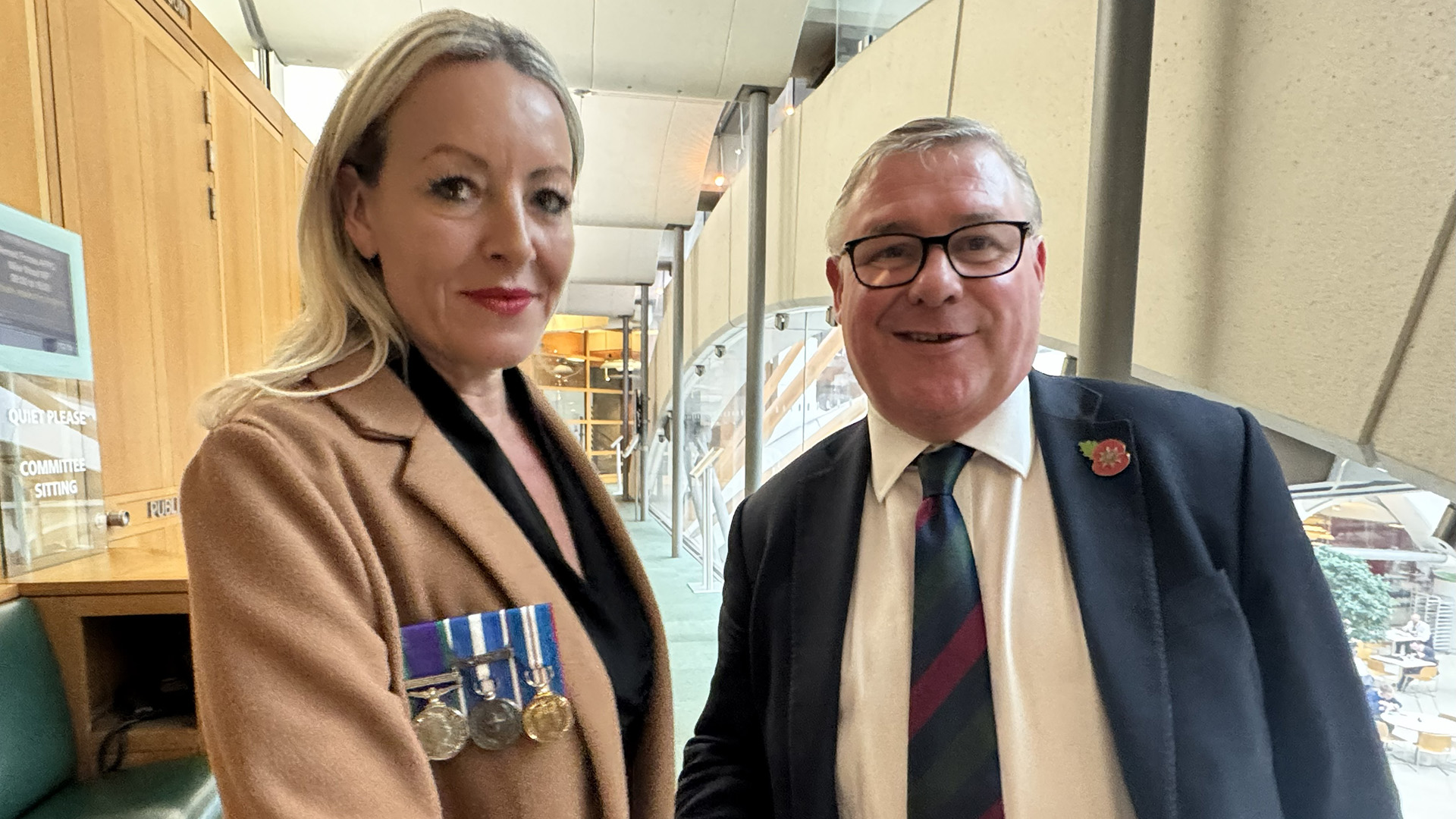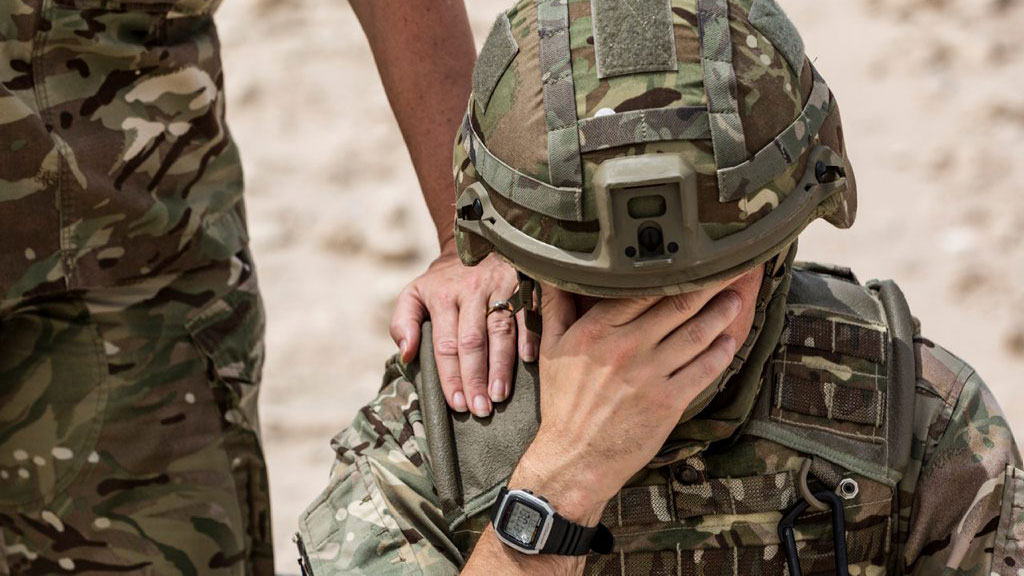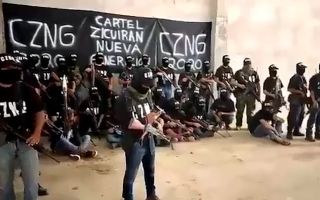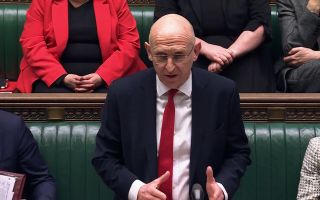Force criticised for search for missing veteran later found dead adopts nationwide scheme
Cleveland Police, which was criticised by the former wife of a veteran who went missing and was later found dead, is one of 17 constabularies to have signed up to a programme designed to help police find veterans when they go missing.
Alan Forcer, a former member of the Coldstream Guards, died in May 2020 after being reported missing.
News of Cleveland Police's adoption of the programme, known as the Forcer Protocol, comes as research revealed by Beacon, an alert platform for missing veterans, shows that ex-service personnel are 14 times more likely to end their lives when they go missing than their civilian counterparts.
Launching the Forcer Protocol
Alan's former wife, Claire Lilly, founded the initiative in the wake of his death after what she felt were failings by the police officers involved in the search for Alan.
Speaking to BFBS Forces News, Ms Lilly said she had called Cleveland Police with concerns for Alan's welfare the day he went missing.
"It became very clear at Alan's inquest a year or so later that the call handler and the force were not veteran trauma-informed," she said.
"They were not understanding or grasping the concept of what it was I was trying to say to them that would determine the outcome of an accurate risk assessment and allocation of resources effectively."
Alan's body was found three days later. His dog Zeus had remained by his side until officers located him.
The tragedy led Ms Lilly to explore how she could help forces like Cleveland Police investigate missing veterans more effectively.
Working with her MP, Mark Francois, a former infantryman, she launched the Forcer Protocol, named in honour of Alan's memory.

Veterans found to be more at risk than civilians
Research by Beacon Alert, an online service that helps share details of missing veterans, shows that ex-servicemen and women are significantly more likely to end their lives when they go missing than civilians.
By studying its own data, Beacon was able to determine the increased level of risk associated with a veteran going missing.
"The latest insight report runs from April 2024 to March 2025, and in that time we had 50 missing personnel and veterans recorded," SJ James from Beacon told BFBS Forces News.
Mr James added: "From those 50, seven were found passed, unfortunately, which accounts for around 14% of that missing persons cohort.
"When we compare that to general figures for missing persons within the UK, that figure is much higher and much more significant than you would see amongst the average population, which records a fatality rate of around 1%."
He said Beacon compared the information with previous years and this year's figures to date, and found the fatality rate to be consistent across the board.
The Forcer Protocol works by pre-registering key pieces of information about a veteran that can then be viewed by police officers should the individual ever be reported missing or vulnerable.
The secure database - which officers can only access when a missing person report is filed - includes details around health needs, mental health risks, and the places a veteran is likely to go if distressed.

Protocol already saving lives, says MP
It means police officers are better equipped should the veteran go missing, leading to people being found faster. According to Mr Francois, who is also a shadow defence minister, the protocol is already saving lives.
"The bottom line of it is it's now being rolled out by police forces across the country," Mr Francois said. "Since it came into operation a bit over a year ago, we estimate several hundred veterans' lives have been saved."
And it's the saving of veterans' lives that stands as a tribute to Alan Forcer's memory - something Ms Lilly is proud of.
"Alan's story isn't unique to him and to our family," she said. "It highlights the necessity and the need for something more robust and practical to be implemented to get the numbers down that we are seeing in terms of suicide rate."
Ms Lilly is keen to stress that currently serving personnel and reservists can upload these details to the secure database, as well as veterans.
Cleveland Police told BFBS Forces News: "Our thoughts remain with Alan Forcer's family and friends following his death in 2020.
"Following this case, a mandatory IOPC referral was made, and a local investigation by Cleveland Police was carried out. The IOPC agreed with Cleveland Police's findings that the actions of the officers involved were in line with the College of Policing Approved Professional Practice (APP) and guidance.
"From the moment a call is received, Cleveland Police officers and control room staff are trained in recognising vulnerability and appropriately grading each missing person based on threat, harm and risk.
"As part of this, we have now implemented the Forcer Protocol within Cleveland Police, so that we can support those who serve, those who have served, and their families. The information available through the protocol can be crucial to finding a missing veteran quickly, especially in those critical first few hours, so they can be safeguarded and protected from harm."
For more information on the Forcer Protocol, visit ForcerProtocol.org.
And if you or someone you know needs support, find help available on our website.








